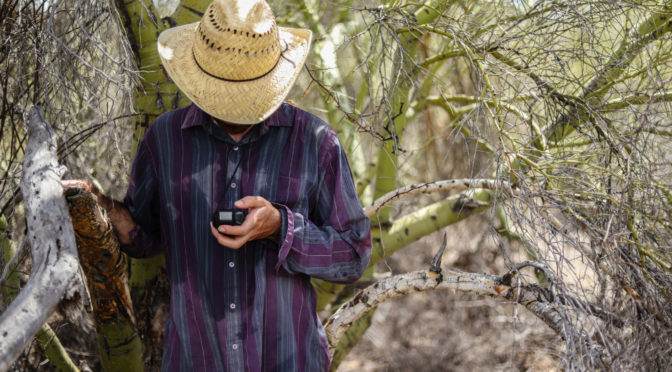We are witnessing the effects of the harshest border and immigration policies yet. Figures from the International Organization for Migration show a 17 percent increase in deaths on the US–Mexico border. The need for a civilian, humanitarian response grows.
- We trained 35 new volunteers this summer, from across the US and other countries.
- Volunteers put out 5,400 gallons of water in June and July, as temperatures topped 110 degrees.
In addition to ongoing Border Patrol surveillance of our Arivaca camp, we are dealing with legal obstacles in the area around Ajo, in the western reaches of southern Arizona.
Cabeza Prieta’s new rules specifically target our work, making it a ticketable offense to leave water, medical supplies, food, and clothing for travelers.
The Cabeza Prieta National Wildlife Refuge—some 1,343 square miles—forms an inhospitable migration corridor together with the neighboring Barry M. Goldwater Air Force Range, an active bombing site. The wells dry out and what few water sources remain are hemmed in by Border Patrol sensors and cameras. Public access to the refuge is by permit only.
For the past six months, No More Deaths has been in dialogue with US Fish and Wildlife Service officials over our activities on Cabeza Prieta. By July 1, a new version of the access permit was issued—the terms of which specifically target our work, making it a ticketable offense to leave water, medical supplies, food, and clothing for travelers. This comes just weeks after one of our weekend patrols found over a dozen human remains in the area.
With Cabeza Prieta’s new rules in place, our volunteers are regularly stopped, questioned, and detained while carrying water into the desert. One NMD crew in late July was detained by five different government agencies in the same day: Fish and Wildlife, the Border Patrol, US Air Force security, the Pima County Sheriff, and the Maricopa County Sheriff.
As government agencies continue to try to redefine the legality of humanitarian aid, we continue to pursue our mission as we know we must.
Featured photo: Jason Outenreath.

